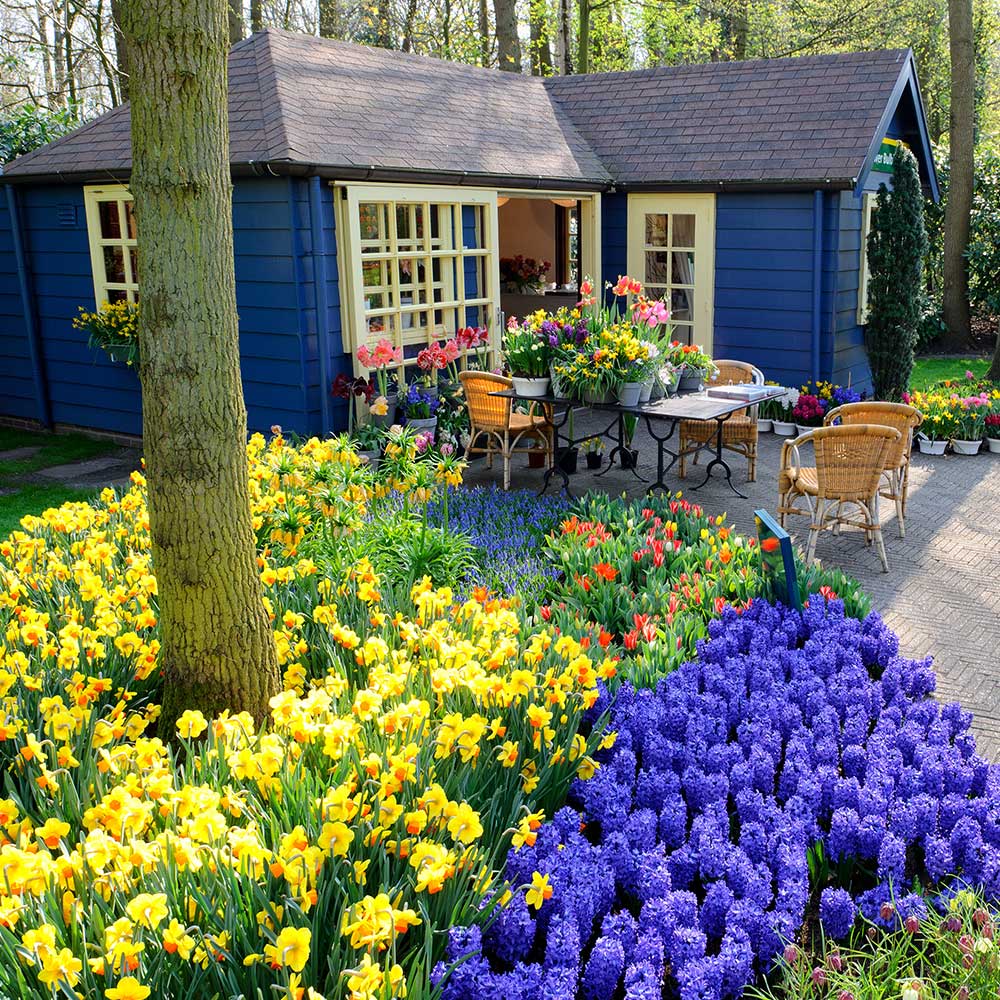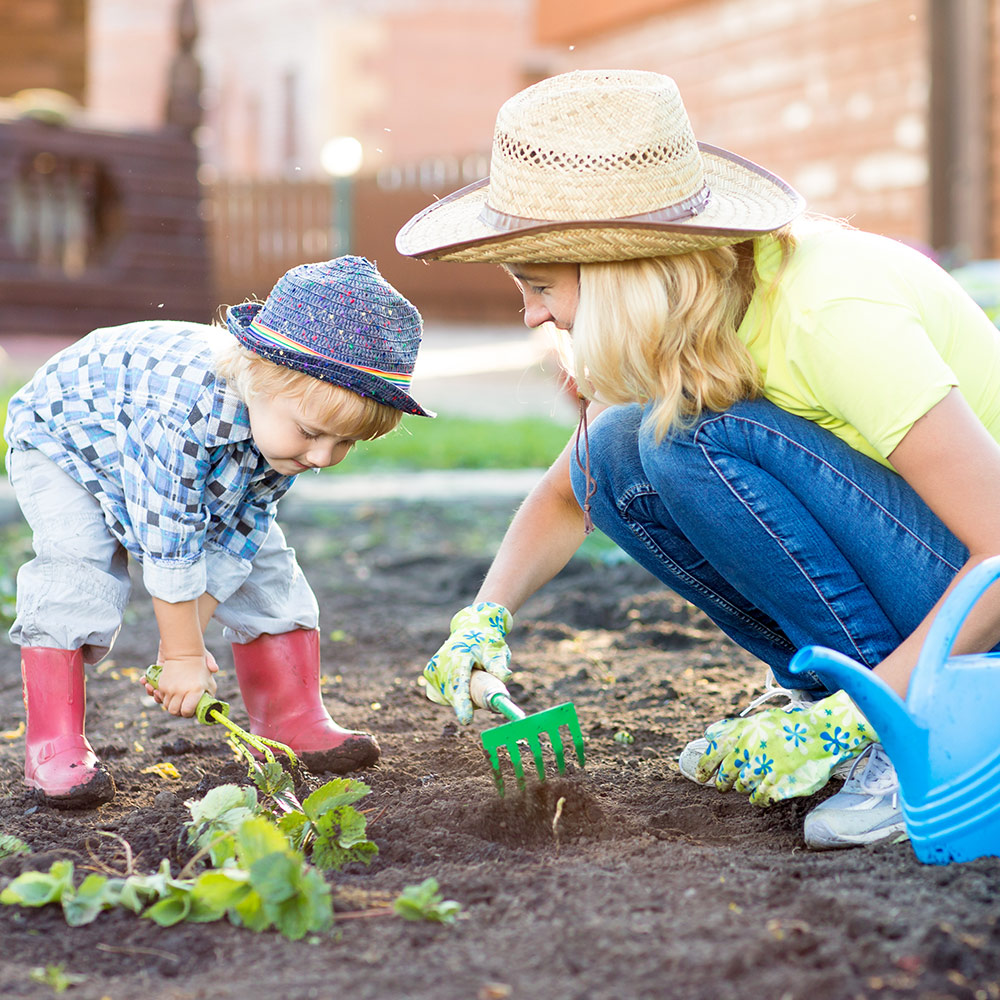
Do you have what you need to make your garden grow?


Garden Center
Shop Outdoor and Garden Supplies Near You
Shop Plants Online
The Home Depot Garden Center at Bloomsburg
Spring Black Friday Savings
Find some of the best savings of the season with our Spring Black Friday deals. Spruce up the great outdoors with patio furniture to fit any decor style. Spring cleaning applies both indoors and outdoors, so refresh your lawn and garden with gorgeous flowers. Don't forget to check out our outdoor power equipment, too. Get it all done when you save during our spring sale, which runs only from April 4th through April 28th. Don't miss out on these deals.
Mother's Day Gardening Gift Sale
Our Mother's Day Sale is the perfect time to help Mom upgrade her garden. We've got savings on popular brands of herb plants, decorative plants, and those details that make a garden special: flower pots, planters, garden decor, and even patio furniture. If you're unsure of the perfect present when searching for Mother's Day gifts, a gift card is a sure-fire winner. Shop The Home Depot Mother's Day Gardening Gifts Sale from May 2nd through May 12th in-store or online.
It's time to start thinking of spring. We're here to help you prepare for fragrant breezes, warmer temperatures, and sprouts poking up out of the ground. Planting seeds indoors with grow lights means you'll be ready to transplant young veggie plants and spring annuals when the frosts are through and the ground thaws. You might even want to directly sow organic seeds into the earth.
Plant Hardiness Zones Explained
The first thing to know when planting spring flowers, veggies, and other seeds is your planting zone. Every location in the U.S. and its territories is sorted into blocks by climate. Find your zone on the USDA growing zone map and learn when to plant seeds.
For example, you could plant bell pepper seedlings outdoors in mid-March in Zone 10, but not until the end of May in Zone 4. The plants that'll thrive in your area are in your zone, and all the zones numbered less than that. In other words, a Zone 9 garden can support plants listed as Zones 1–9. You can plant seeds indoors roughly a month before you can plant them outside, or direct sow. Always read your seed packet for details. If you start plants a little later than recommended, it's not ideal, but it will even out as time passes.
Gardening in Your Growing Zone
In Zone 5, which includes parts of Pennsylvania as well as upstate New York, New Hampshire, Vermont, and southern Maine, your best bets for veggies will be root vegetables like beets and carrots, leafy greens including lettuce, and cruciferous veggies like broccoli and kale. You can try squash, but prepare for additional warming upkeep when late frost is forecast. Planting dates are roughly mid-March through May 1st, depending on whether you're directly sowing them into your garden or starting your seeds indoors.
Much of West Virginia, Ohio, Pennsylvania, Connecticut, Massachusetts, southern New York state, and New Jersey are in Zone 6, so planting can begin earlier there than farther north. Parts of Virginia are even warmer, coming in at Zone 7. The outdoor growing season doesn't begin until mid-March or even April, although you can plant some veggie seeds halfway through February. Tomatoes, cucumbers, peppers, squash, onions, and other classic garden crops will thrive in this region, and most of them can get an early start indoors before spring really moves in.
Plant Seeds Outside With Direct Sow
Planting seeds with the direct sow method, right into the soil, is another option. There's less planning and tending than growing indoors. If you like to go with the flow, follow the instructions on your seed package and try it out.
Your seeds might struggle to grow or get washed away, or critters or insects might eat the sprouts. But if you're really fortunate, you might get strong sprouts, perfectly spaced and ready to grow all spring. The reality of your garden will usually be somewhere in between, and spreading out tiny sprouts throughout the soil isn't so bad. You know those sprouts are hardy, although there are no guarantees.
Start Seeds Indoors
If you're eager to get growing or would like more control in the care and feeding of seedlings, start your seeds indoors instead. In general, you can plant seeds indoors about a month before you can do it outside. Like direct sow, you push the seeds into the soil as directed on the seed packet, but that's where the similarities end.
You're responsible for giving them quality substitutes for rain and sunlight. Keep your seeds warm with warming mats and grow lights, water them carefully with a mister or watering can, then thin them as they germinate in groups of three. Give them a boost with a gently blowing fan as they lengthen into sprouts if you'd like. Harden them off to get them used to outdoor conditions, then transplant them into your garden when they're big enough.
Transplant Young Plants Into Their New Homes
When your plants have three or four real leaves — different from mini seedling leaves – it's time to transplant them. In quality soil, dig a hole that's the same size as the dirt plug where your transplant has been growing. If your ground soil isn't fantastic, dig a slightly bigger hole and fill the extra space with nutrient-rich topsoil. Apply fertilizer as directed. Don't apply more than recommended, as you could burn and kill the plant instead of helping it.
Protect Your Garden With Mulch
Finish off your garden with mulch and compost. Compost enriches the soil so your garden can grow even better. It may help foster larger plants that bear more flowers and fruit. Mulch controls weeds and keeps your soil from drying out. Mulch and compost can be purchased in-store or created at home. The next time you're looking for "mulch near me," stop by the Garden Center to get the perfect amount.
Greet the Spring
Late winter into early spring is an exciting time in the world of gardening. Don't miss a minute of growing season. Prepare to fertilize your lawn, plan your garden and landscaping, and browse our garden center pages to find inspiration on which spring flowers to plant when the weather warms. Shop for the seeds, soil, and fertilizer you need in the aisles of your Bloomsburg Garden Center, online, or on our mobile app. Let's get growing together.
Shop Outdoor and Garden Brands
Frequently Asked Questions About Gardening
What planting zone am I in?
Check the USDA growing zone map, as planting zones have changed slightly over the years. Zones with higher numbers can plant earlier in the year. Increase your odds of successful gardening by choosing plants that are meant for your zone.
What's direct sow?
If the ground isn't frozen solid and the soil isn't cold, consider planting your veggie, flower, or fruit seeds directly into your garden. This is called the "direct sow" method. The time to plant will be after the threat of frost is gone for the season, as seedlings and sprouts can't weather those conditions. You can also start your seeds indoors if you'd like. Consult your seed packet for when and how to sow seeds.
Do you carry organic seeds and plants?
We offer many organic gardening options, including organic fruit seeds and veggie seeds, and organic flower and herb seeds which are subject to availability. We carry the organic soil to plant it in as well as the organic fertilizer to feed it.
Do I have to harden off my seedlings before planting them outside?
Yes, for best results, if you raised plants indoors from seeds, harden them before you transplant them. Hardening allows your seedlings to adjust to outdoor life, spring rains, and temperature swings, making them more resilient against cold snaps. It slows their growth until they're strong and ready to take off during a spring warm front.
What do I do before planting seeds or transplants outside?
Before you plant, make sure that the soil is healthy, it's warm enough outside, and your plant will have the right amount of sun. Check your seed package to see if it likes full sun, shade, or partial sun, as well as what time of year it should be planted. Space your plants as described on the seed packet for best results so your plant babies have room to grow big and strong.
What are seed tapes?
If you want more guidance in planting or are dealing with extremely tiny seeds, consider seed tapes. They're biodegradable pieces of paper with tiny seeds affixed at regular intervals. Just bury the tape and water as directed. If all goes well, your perfectly spaced sprouts will pop up soon.
Nearby Stores
600 Terry Rich Blvd
Saint Clair, PA 17970
25.59 mi
Store:
Pro Service Desk:
Mon-Sat: 6:00am - 10:00pm
Sun: 8:00am - 8:00pm
41 Spring St
Wilkes-barre, PA 18702
36.35 mi
Store:
Pro Service Desk:
Mon-Sat: 6:00am - 10:00pm
Sun: 8:00am - 8:00pm
801 E Walnut Street
Lebanon, PA 17042
47.19 mi
Store:
Pro Service Desk:
Mon-Sat: 6:00am - 10:00pm
Sun: 8:00am - 8:00pm
)

)

.jpeg?im=Crop,rect=(363.69230769230774,1.2307692307692308,958.7692307692308,958.7692307692308))
)
)
)
)









)
)




)


)
)














































